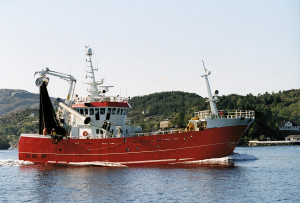L’Europe légalise la surpêche
La surpêche en Europe est légalisée structurellement. C’est la suite du projet de la pêche de plusieurs années pour la mer Baltique sur lequel on a conclu un marché cette semaine entre les Etats membres de l’UE et le Parlement européen. Le Parti pour les Animaux avertit que le projet convenu agit en dépit des accords d’avant afin d’arrêter la surpêche en 2020 au plus tard. «Ce projet ne légalise pas seulement la surpêche dans la mer Baltique, mais indirectement aussi la surpêche dans la mer du Nord et d’autres eaux dans l’UE,» dit Euro parlementaire Anja Hazekamp, qui a participé aux négociations au nom du Parti pour les Animaux.

Les négociations des mois durant concernant le projet de la pêche pour la mer Baltique se sont passées d’une manière pénible. L’équipe de négociation du Parlement européen a plaidé pour l’arrêt de la surpêche en 2020 au plus tard. «Réduire la pêche jusqu’à un niveau durable est nécessaire pour éviter que nos mers sont vidées complètement. Sept des huit espèces de poissons dans la mer Baltique sont en danger à cause de la surpêche et d’autres facteurs. La Méditerranée est gravement menacée et aussi dans la mer du Nord il y a des populations de poissons qui sont dans des difficultés. Le projet de plusieurs années pour la mer Baltique était une chance pour prendre un départ à attaquer la surpêche,» déclara Hazekamp.
Pourtant pendant les négociations les Pays-Bas et d’autres pays dans l’UE ont refusé d’accepter une limite de la pêche durable. «Les Etats membres de l’UE ont continué à stipuler des exceptions pour pouvoir pêcher plus. Une majorité de l’équipe de négociation est tourné casaque sous une grande pression des Etats membres et de la Commission européenne. Les conséquences sont grandes et ne seront pas limitées à la mer Baltique,» a averti le Parti pour les Animaux, qui n’était pas d’accord du marché de la surpêche.
«Le projet de la mer Baltique sera également le point de départ de la mer du Nord, de la Méditerranée et d’autres eaux européennes. De cette façon la surpêche structurelle en Europe est légalisée,» déclara Anja Hazekamp.
Il y a encore une seule chance d’arrêter la législation de la surpêche. L’ensemble du Parlement européen doit encore approuver le projet pendant un vote plénier avec tous les 751 membres.
Le groupe parlementaire du Parti pour les Animaux dans l’Assemblée nationale néerlandaise ont mis en doute le rôle que les Pays-Bas ont joué à la réalisation du projet de la mer Baltique. Député Frank Wassenberg a posé des questions parlementaires au secrétaire d’Etat Van Dam concernant l’ardeur des Pays-Bas pendant les négociations.
Overfishing in Europe will be permanently legalised. This is due to the Multiannual Plan for Fisheries in the Baltic Sea on which a deal was concluded between the EU member states and European Parliament this week. The Party for the Animals warns that the agreed plan is in defiance of earlier commitments to put an end to overfishing before the year 2020. “This plan will not only legalise overfishing in the Baltic Sea, it will consequentially make overfishing in the North Sea and other European waters legal as well,” says MEP Anja Hazekamp, who took part in the negotiations on behalf of the Party for the Animals.

The months of negotiations on the plan for fisheries in the Baltic Sea advanced with difficulty. The EU negotiating team called for an end to overfishing before the year 2020. “Gradually reducing the level of fishing to sustainable levels is absolutely necessary to prevent our seas from becoming completely fished out. Seven out of the eight fish species living in the Baltic Sea are endangered due to overfishing and other factors. Fish populations in the Mediterranean Sea as well as in the North Sea are under serious threat. The multiannual plan for the Baltic Sea was our chance to start tackling the issue of overfishing,” according to Hazekamp.
However, as the negotiations proceeded, the Netherlands as well as other EU countries refused to accept a sustainable fishing limit. “EU member states kept negotiating exceptions which would allow them to fish over the set limits. A majority of the negotiating team changed their minds due to great pressure from the member states and European Commission. This will have major consequences which will not be confined to the Baltic Sea,” warns the Party for the Animals, which did not support the overfishing deal.
“The Baltic Sea Plan will also serve as a starting point for the North Sea, the Mediterranean Sea and other European waters. It will thereby legalise structural overfishing in Europe,” says Anja Hazekamp.
There is one final chance to stop the legalisation of overfishing. The plan still has to be adopted by the entire European Parliament in a plenary vote with all 751 members.
The Party for the Animals´ Lower House faction questions the role that the Netherlands has played in the realisation of the Baltic Sea Plan. MP Frank Wassenberg has posed questions in Parliament to State Secretary Van Dam about the input from the Netherlands during negotiations.